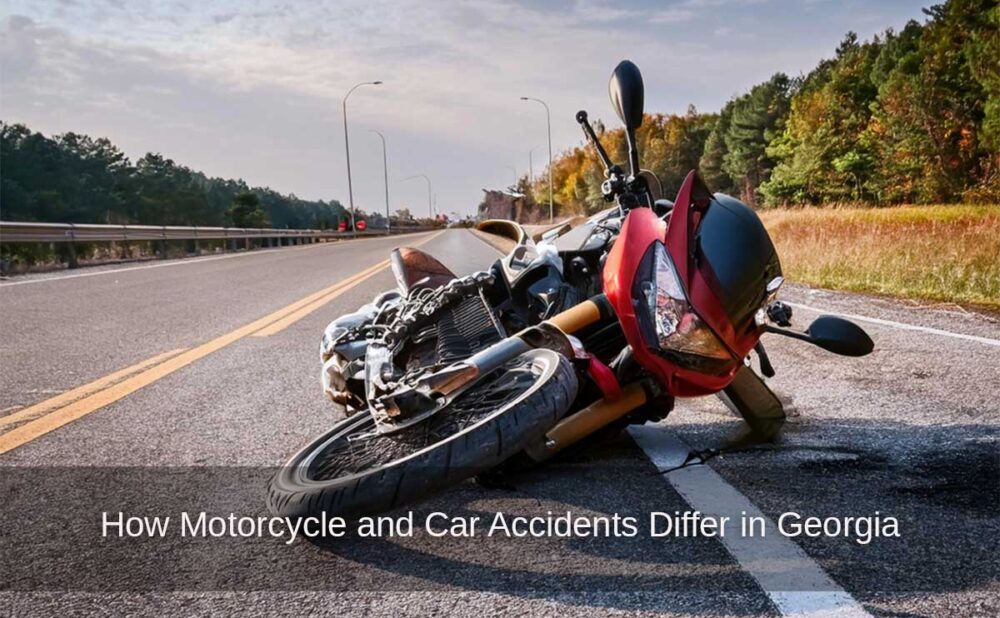How Motorcycle and Car Accidents Differ in Georgia
Motorcycle accidents are inherently different from car accidents, not only in terms of physical impact but also in legal, medical, and insurance consequences—especially in a state like Georgia. Understanding these distinctions is crucial for riders, drivers, and accident victims navigating the aftermath of a collision.
Severity of Injuries
The most striking difference between motorcycle and car accidents is the severity of injuries. Motorcyclists are significantly more vulnerable due to the lack of structural protection, such as seat belts, airbags, or a metal frame. According to data from the Georgia Department of Driver Services, motorcyclists are 29 times more likely to die in a crash than car occupants. Even low-speed motorcycle accidents often result in serious injuries like:
- Traumatic brain injuries (even with a helmet)
- Road rash and deep lacerations
- Spinal cord injuries
- Broken limbs
By contrast, car occupants are typically shielded from direct contact with the road and other vehicles.
Causes of Accidents
While distracted driving, speeding, and impaired driving are common causes of both motorcycle and car accidents, motorcycles are uniquely vulnerable to:
- Blind spot collisions. Drivers often fail to see motorcycles due to their smaller size.
- Road hazards. Potholes, gravel, and wet pavement pose far greater threats to motorcycles than to cars.
- Left-turn accidents. A large portion of Georgia’s motorcycle accidents occur when cars turn left in front of oncoming motorcycles.
Legal and Insurance Challenges in Georgia
Georgia follows a modified comparative negligence rule, which means if you’re found to be 50% or more at fault, you cannot recover damages. This becomes especially tricky in motorcycle cases, where bias against riders can influence fault determinations.
Insurance issues also differ:
- Motorcycle insurance policies often do not include personal injury protection (PIP), which is more common in car policies.
- Uninsured/underinsured motorist coverage may not be standard, yet it’s critical given the high costs of motorcycle injury treatment.
Furthermore, motorcycle accident claims in Georgia often involve more litigation and require expert testimony to demonstrate rider visibility and road conditions.
Helmet Laws and Liability
Georgia law mandates that all motorcycle riders wear a helmet, regardless of age. Failing to do so can significantly impact a personal injury claim. Even if a rider is not at fault, not wearing a helmet may lead to a reduction in damages for head or neck injuries under Georgia’s comparative fault system.
Economic and Emotional Impact
Motorcycle accident victims often face higher medical costs, longer recovery times, and more lost wages. Emotional trauma is also intensified due to the more violent nature of these crashes. This makes pain and suffering damages a larger component of motorcycle accident claims compared to car accidents.
Motorcycle accidents differ from car accidents in Georgia in almost every respect—physically, legally, and financially. Because of the heightened risk and complex liability issues, it’s critical for injured riders to seek guidance from experienced legal professionals who understand Georgia’s traffic laws and insurance landscape.
Whether you’re a rider or a driver, being aware of these distinctions can help you stay safe—and prepared—in Georgia’s unique road environment.





